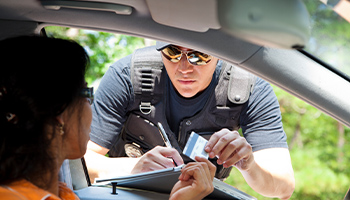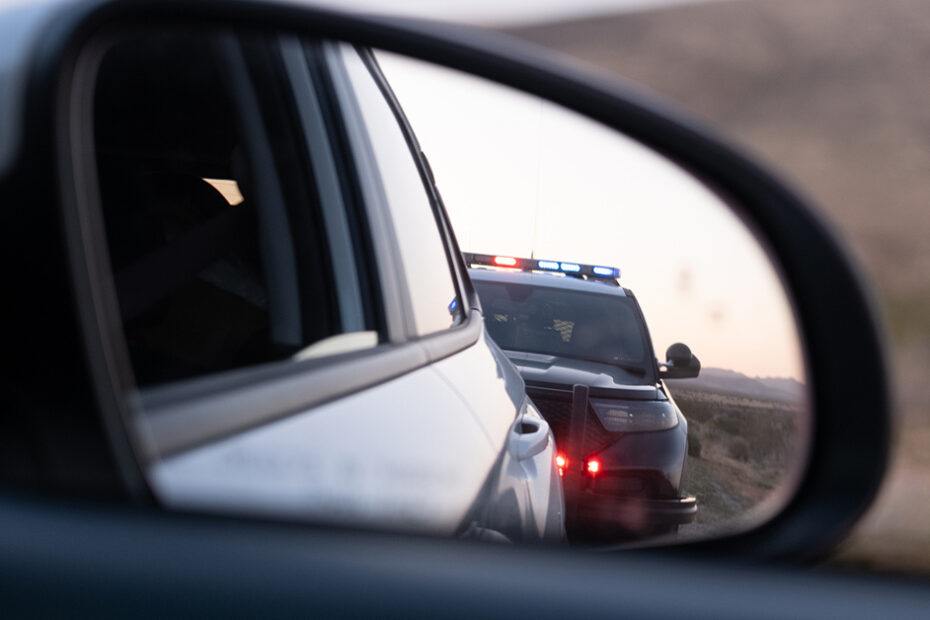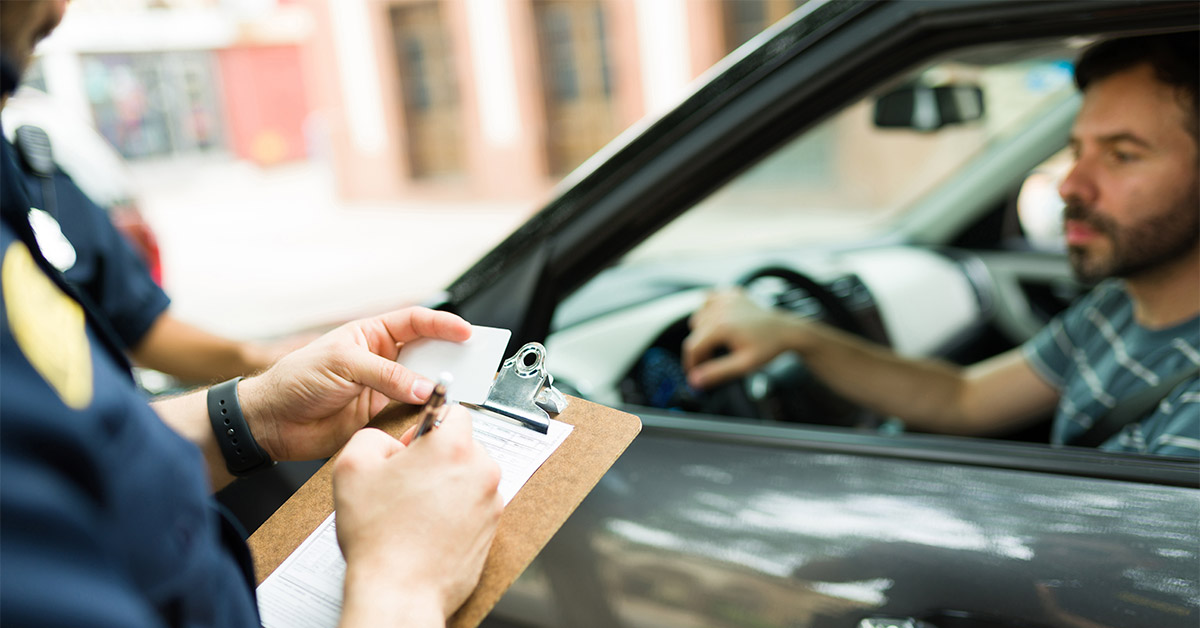Consider this: you’re visiting your family out of state for the holidays and are cruising down the highway when suddenly you hear police sirens turn on behind you. You lost track of your speed, and now you’re getting a speeding ticket in a state you do not live in. What happens next? Do you have to fly back at a later time? Will your home state know about it? If this scenario sounds familiar, here’s a quick guide on what to expect when you get a speeding ticket in another state.
What Happens If I Get a Speeding Ticket in Another State?

In most cases, getting an out-of-state speeding ticket will be the same process as getting a speeding ticket in your home state. You will still have the following options: pay the fine associated with the ticket or challenge the offense in court.
Even though you don’t live in the area, you cannot outrun a speeding ticket by returning to your home state. That’s because most states are a part of The Driver License Compact (DLC), which is an agreement between 45 states plus the District of Columbia to report out-of-state traffic violations to the licensing authority in the driver’s home state. For example, let’s say you live in California but get a speeding ticket in New York when visiting family. Because both states are a part of the DLC, your New York speeding ticket will be treated as if you received it within California’s borders.
If you receive an out-of-state speeding ticket, you must resolve the ticket with the issuing state. If you don’t, you could risk additional penalties based on the Nonresident Violator Compact (NVC), which is another agreement between all states except Alaska, California, Michigan, Montana, Oregon, and Wisconsin to suspend your license if you fail to settle an out-of-state traffic violation.
Only two states are not part of either agreement: Michigan and Wisconsin. Nevertheless, failing to pay for a speeding ticket in these states may still lead to consequences, such as suspending your driving privileges in that particular state. Although they cannot suspend your home state license, they can report the violation to your licensing authority, which can have additional repercussions.
Will an Out-of-State Speeding Ticket Add a Point to My License?
Whether or not points are added to your driver’s license will depend on where you were issued the ticket and which state you have a driver’s license in. Most states utilize a point system for handling violations. However, the number of points added for a violation can vary from state to state. If the out-of-state violation is reported, you can expect it to carry the same consequences as if you received the violation at home.
Can I Contest a Traffic Ticket From Another State?
You can contest an out-of-state speeding or traffic ticket the same way that you can contest one in your home state. However, keep in mind that if the state does not allow you to contest the ticket with a written declaration or by appearing remotely, you’ll have to return to the state or hire an attorney to appear in court for you. Depending on which state you received the ticket in, it may cost more to contest than to settle the fine.
How Do I Pay for a Ticket From Another State?
When you get a ticket, all the information you need to pay the fine should be on the ticket. This includes the fine amount, due date, payment methods, and how to pay. Plus, some counties may even provide online payment portals where you can log in to pay your fine. Regardless of how you pay, be sure to settle the fine before the due date to avoid any additional fees or penalties.
How Will a Speeding Ticket Affect My Car Insurance?

Your driving record is one of the primary factors auto insurance companies use to determine your insurance rate. Insurers will consider you a risky driver if you have multiple traffic violations on your record, which will cause you to have higher rates than those without.
If your insurance company decides to increase your rate after a speeding ticket, you won’t notice it until your policy is up for renewal. This is the time your provider can review your driving record and discover any traffic violations. On average, drivers could see a 20% increase in their car insurance premium after a speeding violation is on their record, but this can vary depending on where you live and your insurance provider.
If it is your first offense and you have the option to reduce the effects of the ticket through traffic school, removing the violation from your record may be possible before your renewal.
Find Reliable Coverage by Comparing Auto Quotes
If you’re facing a rate increase after getting a speeding ticket, it may be worth considering comparing auto insurance quotes to find a more favorable rate. Remember, auto insurance companies weigh various factors differently, meaning one insurer may not penalize speeding tickets more than others. Although this isn’t a guarantee, it is worth doing if you’re trying to save as much as you can.
At AIS, we have over 55 years of experience helping our customers find and secure reliable coverage from our network of trusted insurance partners. Whether you have a clean record or not, our insurance specialists can assist you with comparing your options and securing a policy that’s best for you. To learn more about how we can help, give us a call at (888) 772-4247 or start a free quote online.
The information in this article is obtained from various sources and is offered for educational purposes. Furthermore, it should not replace manuals or instructions provided by the manufacturer or the advice of a qualified professional. No warranty or appropriateness for a specific purpose is expressed or implied.


